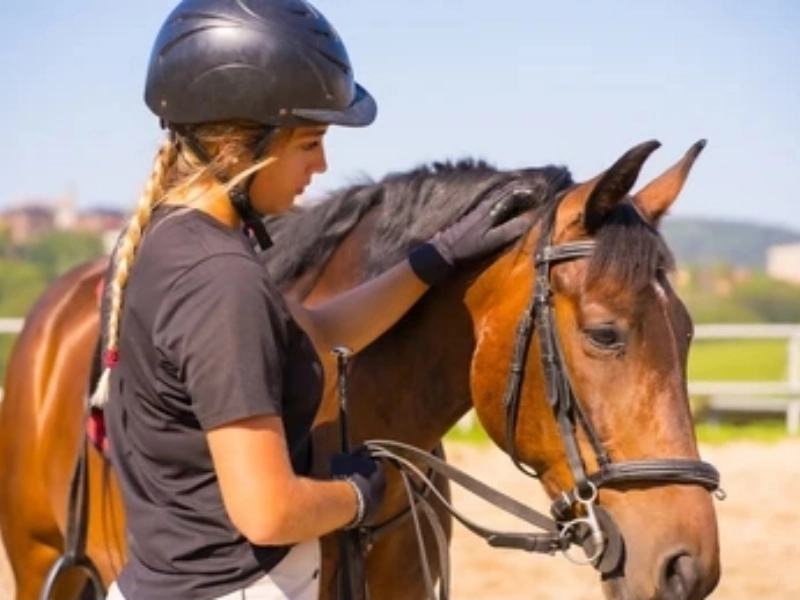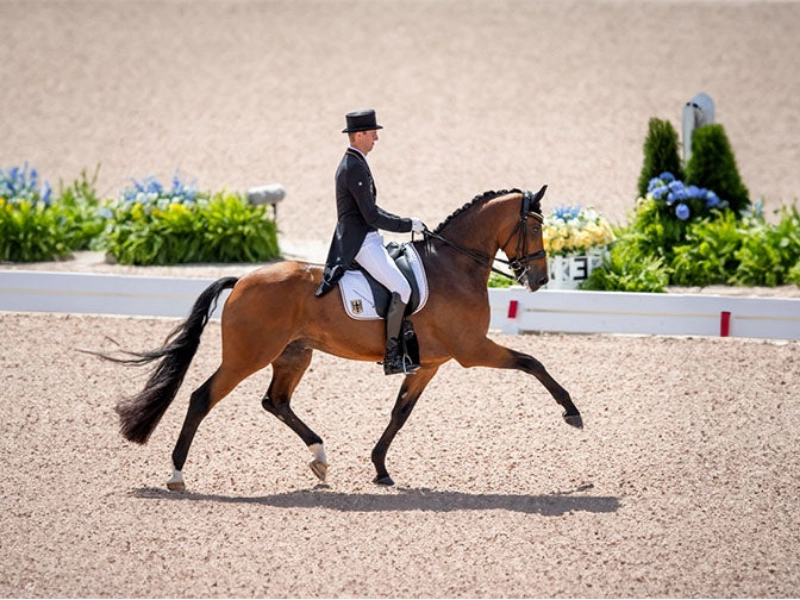Horse owners have to get ready when the winter months arrive to make sure their equine friends stay comfortable and healthy in the cooler temperature. Though they are strong creatures, horses need particular attention to flourish in winter. From controlling their diet to offering enough cover, there are a few basic ideas to think about. This page provides efficient winter care plans for horses, therefore enabling owners to keep their horses healthy and happy all through the season.

 For horses in winter, enough shelter is really vital. Horses need a dry, clean, draft-free barn or shelter where they may flee bad weather. In addition to shielding them from wind, rain, and snow, a well-built barn aids to preserve a consistent temperature. Make sure bedding is sufficient and clean to offer insulation from the ground and comfort.
If your horse is housed outside, think about using natural barriers or windbreaks to protect them from strong gusts. Additionally crucial is making sure the shelter is hazard-free, including holes where a horse may get caught or sharp things. Frequent inspections of the shelter for any wear and tear will help you to make required repairs guaranteeing safety. Your horse will feel safe and protected in the cold if you create a comfortable and secure surroundings.
For horses in winter, enough shelter is really vital. Horses need a dry, clean, draft-free barn or shelter where they may flee bad weather. In addition to shielding them from wind, rain, and snow, a well-built barn aids to preserve a consistent temperature. Make sure bedding is sufficient and clean to offer insulation from the ground and comfort.
If your horse is housed outside, think about using natural barriers or windbreaks to protect them from strong gusts. Additionally crucial is making sure the shelter is hazard-free, including holes where a horse may get caught or sharp things. Frequent inspections of the shelter for any wear and tear will help you to make required repairs guaranteeing safety. Your horse will feel safe and protected in the cold if you create a comfortable and secure surroundings.
 Although most horse owners blanket throughout winter, it's important to get the correct blanket for your horse's need. Not all horses need blankets; those with thick winter coats could be very good without one. Older, trimmed horses, however, or those with health problems may find extra warmth beneficial. Consider elements include the horse's activity level, coat condition, and degree of the weather while choosing a blanket.
Make sure the blanket fits correctly; an ill-fitting blanket might irritate and create rubbing. Search for blankets with movable straps and a design that lets you have flexibility of movement. Your horse's body temperature should also be watched; if it seems excessively warm, take off the blanket to stop overheating. Check the blanket often for wear and tear; clean it as necessary to keep hygienic. Good blanketing will help your horse stay warm and cosy, thereby enabling them to flourish throughout winter.
Although most horse owners blanket throughout winter, it's important to get the correct blanket for your horse's need. Not all horses need blankets; those with thick winter coats could be very good without one. Older, trimmed horses, however, or those with health problems may find extra warmth beneficial. Consider elements include the horse's activity level, coat condition, and degree of the weather while choosing a blanket.
Make sure the blanket fits correctly; an ill-fitting blanket might irritate and create rubbing. Search for blankets with movable straps and a design that lets you have flexibility of movement. Your horse's body temperature should also be watched; if it seems excessively warm, take off the blanket to stop overheating. Check the blanket often for wear and tear; clean it as necessary to keep hygienic. Good blanketing will help your horse stay warm and cosy, thereby enabling them to flourish throughout winter.
 A horse's hooves may suffer greatly in winter, hence hoof care is especially crucial in this season. Ignored, snow and ice can build up in the hooves and cause discomfort or even damage. Debris can be removed and ice accumulation avoided by regular hoof cleaning. Clear any compacted snow or ice with a hoof pick, then look for any evidence of thrush or injury.
Plan frequent visits from a farrier to guarantee that the hooves of your horse are correctly kept and trimmed. On some icy surfaces, adding stud-equipped shoes or employing anti-slip pads can offer additional traction. Applying hoof oil or conditioner also helps keep hooves moist and stops cracking. Giving hooves top priority will enable your horse to comfortably and securely negotiate winter.
A horse's hooves may suffer greatly in winter, hence hoof care is especially crucial in this season. Ignored, snow and ice can build up in the hooves and cause discomfort or even damage. Debris can be removed and ice accumulation avoided by regular hoof cleaning. Clear any compacted snow or ice with a hoof pick, then look for any evidence of thrush or injury.
Plan frequent visits from a farrier to guarantee that the hooves of your horse are correctly kept and trimmed. On some icy surfaces, adding stud-equipped shoes or employing anti-slip pads can offer additional traction. Applying hoof oil or conditioner also helps keep hooves moist and stops cracking. Giving hooves top priority will enable your horse to comfortably and securely negotiate winter.
For a horse's physical and mental health, consistent exercise is absolutely vital even in winter. Though there are few chances for outside riding in cold conditions, you may still keep your horse active. If at an indoor arena, think about lunging or working them there. Keeping your horse occupied and happy, groundwork and obstacle courses can also give both physical exercise and mental stimulation. Maintaining the mental health of a horse depends also on social connection. Let your horse spend time with other horses if as all possible; companionship helps to lower tension and boredom. Turnout time is crucial since it lets horses exercise freely and exhibit natural activities even in winter. Track the weather to guarantee that turnout is safe and that horses have cover should need. Regular exercise and social events will help your horse remain physically strong and psychologically active all through the winter.
Winter calls for regular veterinary treatment to keep your horse healthy. Plan regular visits and vaccines since sometimes cold weather aggravates health problems. Look for any changes in your horse's demeanor, appetite, or energy level; these could point to underlying medical issues. Apart from regular maintenance, think about talking to your veterinarian about health issues related especially to winters. Horses, for example, can be more prone to respiratory problems in cold, moist environments. Talking about preventative steps like appropriate barn ventilation will assist to reduce these hazards. Keeping proactive about your horse's health and seeing a veterinarian will help to guarantee that they stay happy and healthy all through the winter. Winter care for horses calls for a complete approach including appropriate diet, cover, foot care, and routine veterinary attention. Following these guidelines will assist horse owners ensure their health and well-being while helping their equine friends flourish through the colder months. Horses can have a safe and comfortable winter if given appropriate care and attention.